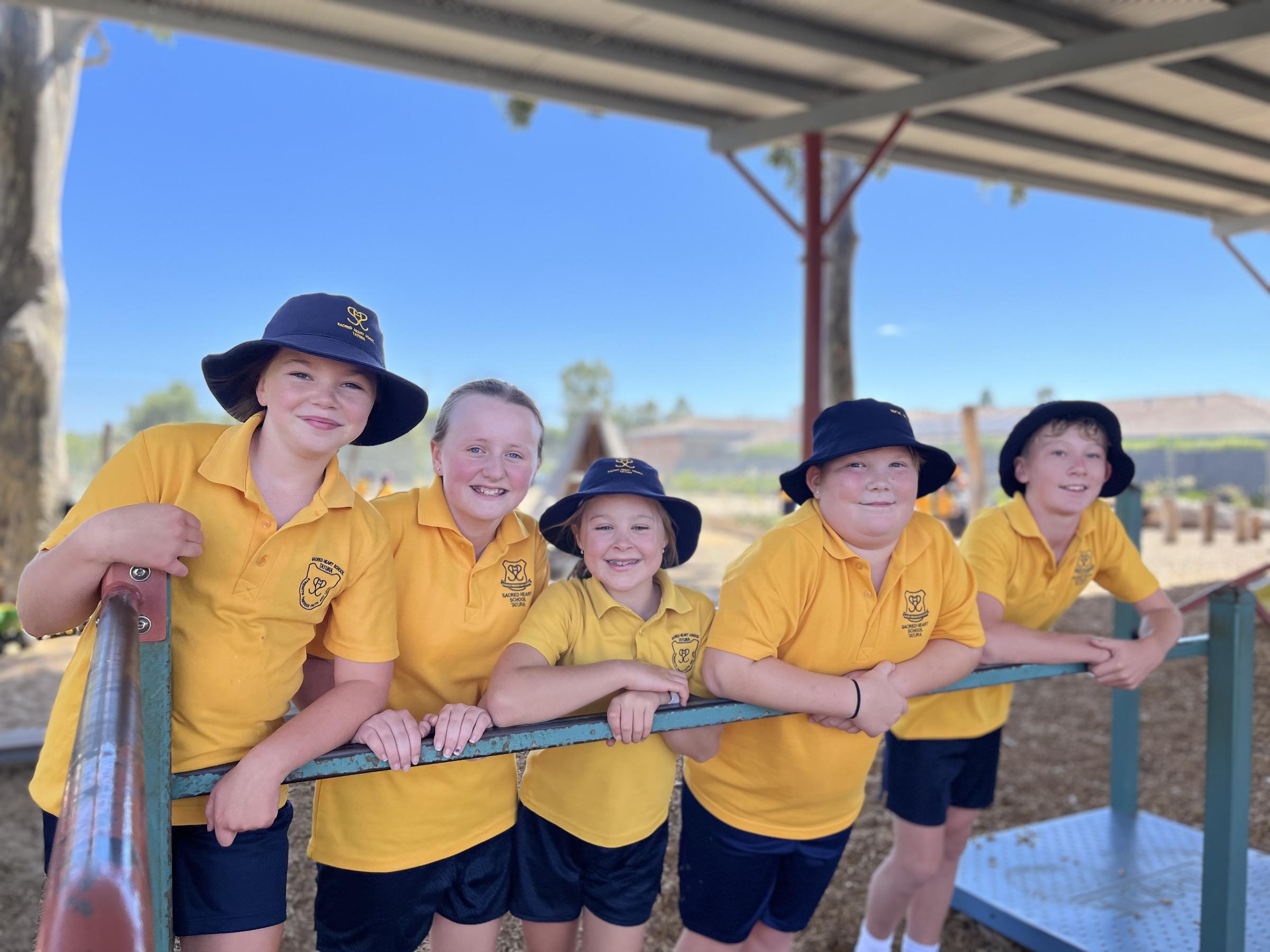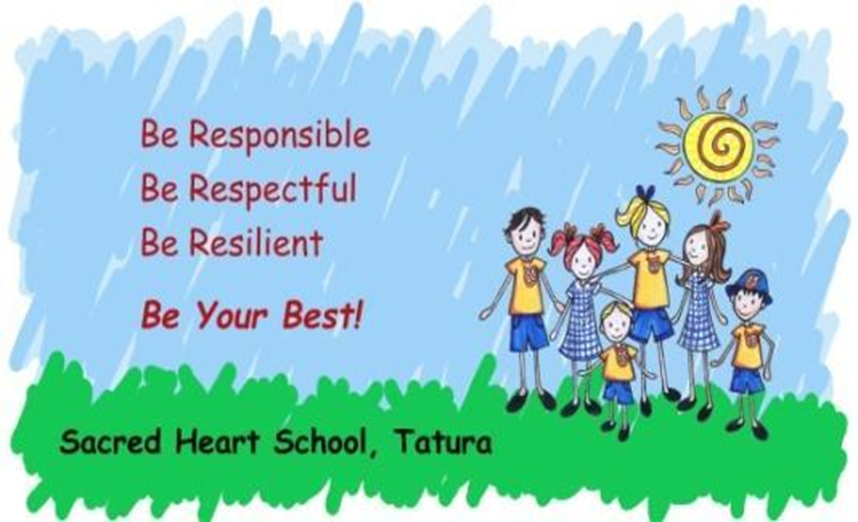Wellbeing MATTERS!

Welcome Benvenuto
WOW what a fortnight it has been!
Without too much to say, we can only add our recent floods experiences down to a force of nature that will bring with it much stress, anxiety and trauma. We are privileged to be in a community where we are able to support each other, be mindful of the needs of our community and as a Catholic school to be able to pray together knowing we are in God’s care and love. This experience is also a resilience building opportunity. Trauma manifests in many ways.
What is trauma?
A traumatic event is a frightening, dangerous, or violent event that poses a threat to a child’s life or bodily integrity. Witnessing a traumatic event that threatens life or physical security of a loved one can also be traumatic. This is particularly important for young children as their sense of safety depends on the perceived safety of their attachment figures.
Traumatic experiences can initiate strong emotions and physical reactions that can persist long after the event. Children may feel terror, helplessness, or fear, as well as physiological reactions such as heart pounding, vomiting, or loss of bowel or bladder control. Children who experience an inability to protect themselves or who lacked protection from others to avoid the consequences of the traumatic experience may also feel overwhelmed by the intensity of physical and emotional responses.
Even though adults work hard to keep children safe, dangerous events still happen. This danger can come from outside of the family (such as a natural disaster, car accident, school shooting, or community violence) or from within the family, such as domestic violence, physical or sexual abuse, or the unexpected death of a loved one.
One way to consider trauma is as a continuum in frequency and severity, from a single event to multiple events occurring over and over again. The three types of traumas are acute, chronic, and complex. Acute trauma occurs as an isolated event, such as a severe accident, medical procedure, or being a victim of a crime. Chronic trauma is when stressful or threatening events are experienced repeatedly, such as domestic violence. Complex trauma results from multiple and ongoing traumatic events such as abuse or neglect, living with alcoholism or substance abuse, and suffering from financial, food, and/or housing instability.
Impacts of trauma
Trauma has both short and long-term effects on a child’s brain and body. Reactions to acute trauma may include shaking, crying, or being easily startled. It may be easier to see and understand a child’s response to an acute traumatic event because it happens immediately, and one can grasp the reason why the child is distressed.
Chronic and complex trauma can be more challenging to detect in the classroom. A child may appear to be reacting to the situation at hand, but in reality, they’ve been triggered by something else. Trauma can affect the body and brain in the following ways:
- Body development: Trauma can lead to living in a near-constant state of extreme stress or fear. This heightened stress response means the child or adolescent can seemingly overreact emotionally, behaviourally, and/or physically to something that another child may not consider stressful. Children who have been traumatized may also over-respond to stimuli and be extremely sensitive to light and sounds.
- Brain development: Trauma often leads to difficulties with language, communication, and processing new information. Reasoning skills are often delayed because of trauma as well.
- Emotions: Emotional struggles are common with a trauma history. Children or teens may have difficulties expressing and managing their emotions, quickly exploding and struggling to calm down once upset.
- Behaviour: Trauma affects the ability to develop healthy attachments and relationships. Distrust, manipulation, argumentative behaviour, and impulsivity can be common in youth who have been traumatized.
Routines and connecting with family, friends and/or familiar items may support recovery:
• eat dinner together
• go to bed at same time each day
• read stories to children each night
• traditions and everyday activities (maybe in new locations or with minor changes)
• replacing or recreating items or events that were lost or unable to go ahead
• placing photos around that family / friends may have stored digitally
• create new positive memories.
[Source: Australian Red Cross]
FREE WEBINAR: Guide to Digital Technologies and Mental Health
This webinar is designed for parents and carers of young people aged 10 - 18. It will explain how games, apps and social media can influence young people's mental wellbeing.
It covers:
- current research on young people, time online and mental health
- accidental exposure to content about suicide, self-harm or eating disorders
- using games, apps and social media to support mental wellbeing
- pros and cons of digital mental health platforms
- strategies for young people to support friends online
The final webinar run is on: Thursday 27 October, 12.30 - 1.30 pm
Register on the link - https://register.gotowebinar.com/rt/9223357062192996109
Weekly Dad Tip
1. Give yourself time. Try not to put pressure on yourself to feel better straight away. It can take time to accept and then learn to live with what has happened.
2. Talk about the event to someone you trust. Even though it may be difficult, research has shown that talking about the situation or event and your feelings can help you to recover and ultimately be more resilient.
3. Pay attention to how you are feeling each day. If you don’t find you are feeling any better over the months, or you are struggling emotionally you should speak to your GP who can arrange professional mental health support to help you through this stage.
Dad Joke of the week
I taught a wolf to meditate. Now he's aware wolf...
Need Some Help
Sarah Langley, our Pastoral Wellbeing Worker has a number of support strategies and programs that may be of interest at this time of crisis.
Stormbirds Program: is a modified and shorter version of Seasons for Growth that is specific to children who have experienced natural disasters. Stormbirds might be something that we can look at towards the end of term/early next year if we are noticing any students particularly impacted.
Drumbeat: will continue to be offered the 5/6's as a space for the students to connect and discuss how things are going. We will assess this upon returning.
CatholicCare: can offer counseling services for children, parents and families who wish to seek support in the weeks/months after the floods. Any children who are showing exacerbated signs of stress can also be referred to our Family Mental Health program for support with coping strategies and processing their emotions. Requests for either of those programs can be directed to 5820 0444.
Sarah welcomes any **emails or calls **if staff or families wish to debrief or seek support.
Sarah can be contacted via email: slangley@shtatura.catholic.edu.au or 5820 0444.
If ever you need help sorting out personal or family issues, give CatholicCare Victoria a call. They offer many services to all members of our community – ALL FREE.
Niente Senza Gioia
Dom POPPA
Pastoral Wellbeing Leader


